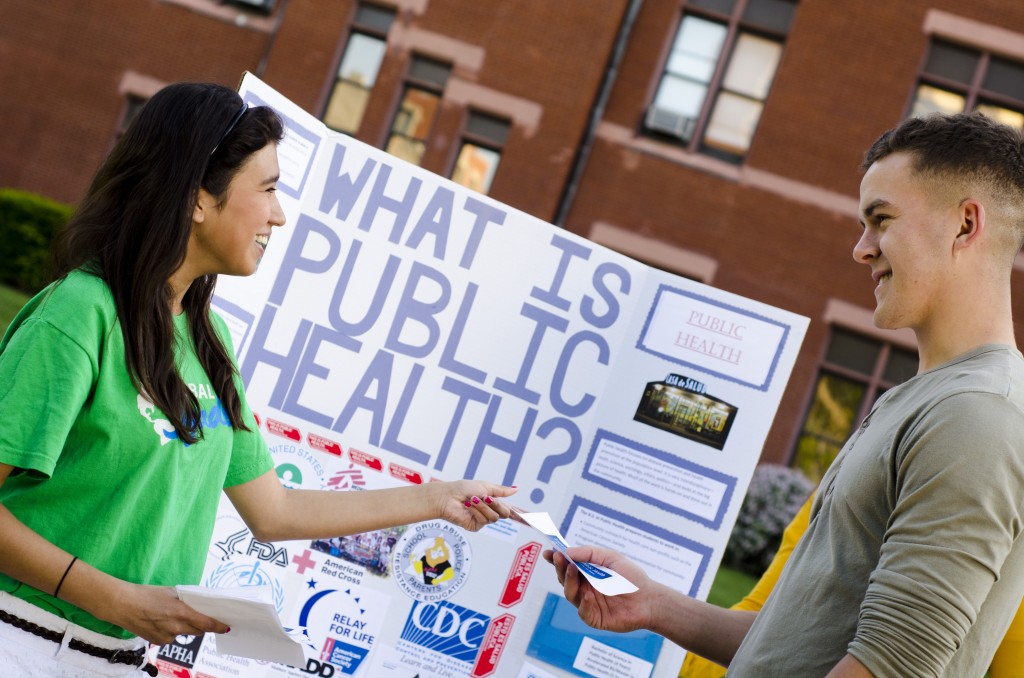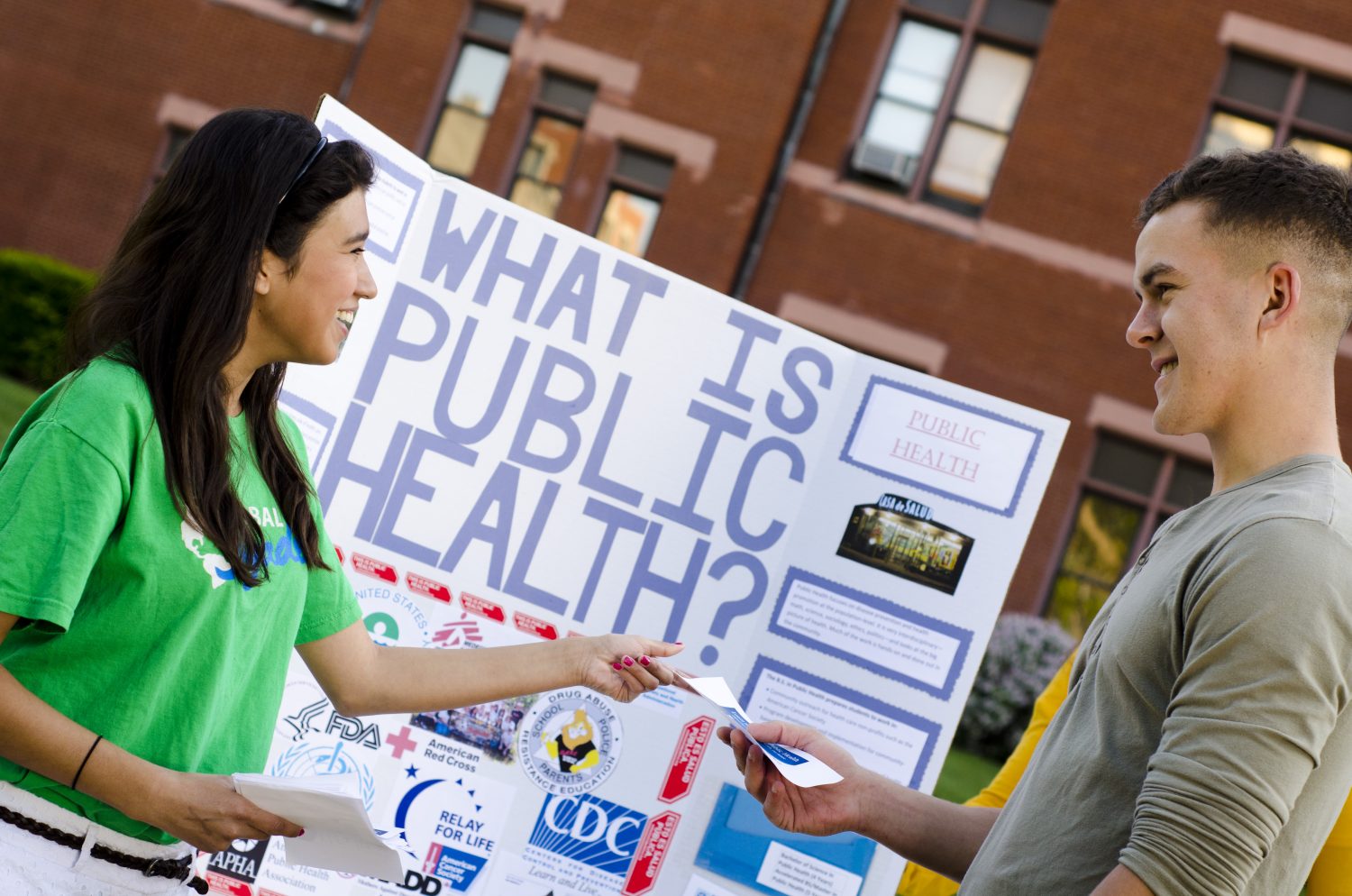
“Public health is a field that seeks to make populations healthy by preventing disease and promoting health at the public population level,” said Edwin Trevathan, Dean of the School of Public Health, “We take a look at health promotion and disease prevention on a grander scale.”
The SLU School of Public Health was founded in 1991 and is the only Jesuit school of Public Health in the United States. The school is accredited by the Council on Education for Public Health, making it one of the 49 accredited Public Health schools in the country. Pulling from the Jesuit tradition of the University, The School of Public Health attests a commitment to collaboration, justice and practice.
“It is important to us that we have a unique covenant in Public Health,” Trevathan said. “It tells us who we are and it’s something we really emphasize here.”
The covenant, which is a unique aspect of the School of Public Health, is a statement of the school’s values of love, responsibility, trust, acceptance, concern, personal development, balance and partnership. Through these aspects, the school seeks to create a person-centric mission.
Trevathan also said what sets Public Health apart from other medical studies is its multiple discipline approach to attacking health problems.
“We take a problem and attack it from different perspectives,” Trevathan said. “We have lawyers working on how vaccine policies should work, epidemiologists tracking epidemics, statisticians that compile data on disease and epidemics, behavioral scientist working to change how people response to a flu out break and working to stop the spread and health management to handle the influx at the hospital. We are truly multi-disciplinary.”
In addition, Trevathan said the programs the school offers are unique because many have a global and community focus.
“We focus on certain areas in St. Louis, and we are a very global school,” Trevathan said. “Our intent is to focus on communities and produce tangible improvements where we serve.
The School of Public Health began as a graduate school, offering degrees in Epidemiology, Environmental and Occupational Health, Biosecurity and Disaster Preparedness, Health Management, Behavioral Science, Health Policy and Biostatistics.
“Schools of Public Health came about because there was a need for people with advanced degrees to run heath care systems and departments,” Associate Dean of Academic Affairs, Darcell Scharff said. “It’s always been a masters program at SLU, but the undergrad program is a fairly new degree.”
The graduate school of Public Health currently hosts approximately 325 students, with some of the more popular fields of study being Epidemiology and Behavioral Science.
The graduate school recently added a new program designed specifically for individuals already working in health management.
“We just started the Executive Management of Health Administration Program,” Schraff said, “It’s a program for those who want an advanced degree and want to hone their health management and executive skills in order to be more effective.”
The fairly new undergraduate program is still growing, but it has already grown significantly in popularity since it’s inception. The program, which began with only 60 students, has already quadrupled in size.
“There is a debate if the undergrad program is a practice degree or a liberal arts degree,” Scharff said. “Our program is somewhere in the middle. We teach undergrad students basic entry-level public health skills.”
The undergraduate program offers three different majors for students: Public Health, Emergency Management and Health Management. “Health Management is a field that focuses on the management of health systems, like hospitals,” said Trevathan. “It’s one of the top in the country and is quickly growing.”
Emergency Management is the management of health disaster responses after events such earthquakes, hurricanes or disease outbreaks. The focus on the program, according to Trevathan, is to prepare for the disasters and maintain health in spite of the situation.
“Emergency management is something that came about after 9/11 and often attracts first responders who might not have a bachelor’s degree,” Scharff said “It’s still a fairly new area in public health.”
Though the program is still growing, the students in the Public Health Undergrad seem enthusiastic. Jaeger, who is majoring in Public Health, is also the president of the Public Health Undergraduate Student Association.
Though the organization is only in its second year of chartered status, it had been an active presence on SLU’s campus.
“The goal of our group is to bring public health to life for the students in the School of Public Health,” Jaeger said. “We already had 26 students join this year, which was double the previous year. We’re very excited to see the interest.”
PHUSA not only serves as a liaison between the School of Public Health and the undergraduate students, but also hosts a speaker series to address issues in public. The group has organized its own service days in addition to participating in the University Service days and provides resources to students looking to make a career out of Public Health.
According to Trevathan, one of the goals for students graduating from the undergraduate program is that they enter the health field with a new perspective.
“Undergrad is designed to help our graduates see the world differently and go on to improve health from whatever perspective they have in life, no matter what the field,” Trevathan said.
As Jaeger finishes her last year of undergrad, she said she is excited for the opportunities public health has opened up for her.
“I found my passion for my future career,” Jaeger said. “I was really excited to have a more clear purpose. Public health is everywhere. It is a great undergraduate major because it really shows the health field through a fantastic lens.”






